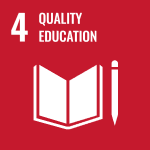Document Type
Reflexive Practice Tool
Publication Date
2024
Keywords
trauma, trauma-informed practice, trauma-informed care, trauma-informed education, post-secondary education, adult learners, traumatic learning, safer learning, trauma in education, trauma-informed education and equity, diversity, inclusion, tr
Faculty
Faculty of Applied Health & Community Studies (FAHCS)
Copyright
© Nicole Johnson & Chai Lee
Terms of Use
Terms of Use for Works posted in SOURCE.
Creative Commons License

This work is licensed under a Creative Commons Attribution-Noncommercial-No Derivative Works 4.0 License.
Original Publication Citation
Johnson, N., & Lee, C. (2024). Trauma Informed Education Reflexive Practice Tool [Unpublished].Sheridan College
SOURCE Citation
Johnson, Nicole and Lee, Chai, "Trauma Informed Education Reflexive Practice Tool" (2024). Trauma-Informed Education. 4.
https://source.sheridancollege.ca/centres_sgg_2023_trauma_education/4





Comments
Research Project Background
In 2021, Nicole Johnson, M.Ed. and Ida Gianvito, M.Ed., RP., representing Sheridan College’s School of Community Studies and Student Affairs embarked on a research project entitled “Developing a Trauma-Informed Practice Framework”. This research project was supported by the Sheridan College Scholarship, Research, and Creative Activities (SRCA) 2021-2022 Growth Grant. The project’s goal was to develop proactive measures to support safer learning and working spaces for students and employees in post-secondary education, and to reduce trauma, re-traumatization, and vicarious trauma.
The research study employed a community-driven approach, conducting eighteen focus groups and interviews with a diverse group of students, faculty, and employees from Sheridan College and a Community of Practice Forum with a cross-section of nine community-based social service agencies conversant in Trauma-Informed Practice, primarily from Halton and Peel regions. The research project integrated principles and practices from an Equity, Diversity, and Inclusion lens and a Trauma Informed Research approach. The research was supported by a comprehensive literature review.
The critical analysis from this research study culminated in the development of a framework entitled “Trauma-Informed Education Grounded in a Systemic Analysis”, which operates from a macro, mezzo, and micro perspective. This framework and recommendations for post-secondary educational organizations were embedded in “Cultivating Trauma-Informed Spaces in Education, Promising Practices Manual”, which was launched in 2023. The Promising Practices Manual supports learning professionals and employees learning and working in education, with increased awareness of trauma, information, and strategies on trauma-informed education in post-secondary education. It is also a call to action, recognizing the important role educational organizations play in proactively preventing trauma and supporting healing and systemic change.
Our hope is that educators and educational institutions, through this preventative and harm-reducing approach, can enhance their learning spaces and workplaces to become more compassionate, supportive, equitable, and flexible; further supporting the collective care and well-being of the diverse community, while addressing the systemic causes of trauma within and outside of the educational system.